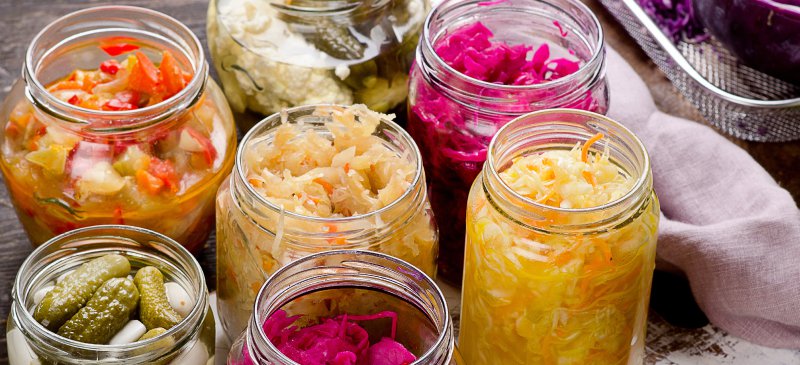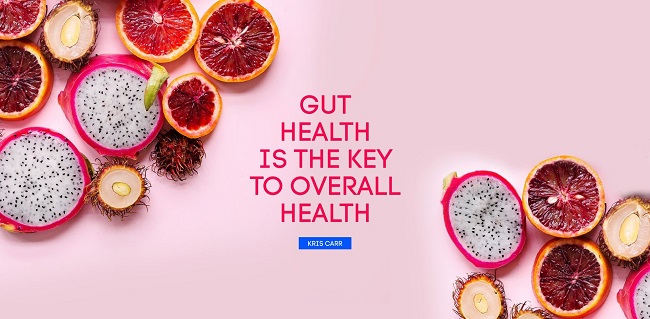
In this Week 4 of the #FGFEatsRealFood nutrition focus, your bonus point opportunity comes by way of fermented foods. You might be wondering, what IS a fermented food? Or, even if you know, might be wondering WHY we would choose ferments specifically for you to focus on. This is a very passionate subject for Coach Kelsie, so we’ll let her take it away!
Enter Kelsie:
What if I told you up to 80 percent of your immune system lies in your gut? Would you believe me if I told you 70 percent of your serotonin is made in your gut, not your brain? I’m here to tell you, our gut health is a big deal!!
Each of us have what is called a microbiome and it is uniquely ours just like our fingerprints. Simply put, our microbiome is the ecosystem that lies in our gut, made up of both good bacteria and bad bacteria.
We start creating our microbiome the second we enter the world, quite literally. Babies who were born via c section versus vaginal will have drastically different microbiomes. Breastfed babies versus formula fed babies will have different bacteria growth; that’s not to say one is better or worse than the other, but rather that EVERYTHING affects your gut from the second we open our eyes.
Unfortunately, due to many of the standard American lifestyle habits, our gut health has been extremely compromised, leading to an up-rise in obesity, diabetes and chronic disease.

Lucky for us our bodies are rock stars and we have the ability to heal! There are many food/lifestyle changes that can help repair our gut lining but for today’s discussion we will solely focus on fermented foods. Optimizing our gut with probiotics aka fermented foods will support the healing of our microbiome, boost your mood and energy levels, reduce inflammation, and assist in enhancing your immune system.
Fermented foods are created through fermentation—a process in which components of foods, like the natural sugars, are broken down by yeast and bacteria into other beneficial substances. The end result is a food that's chock-full of probiotics and a variety of other nutrients.
There are different types of fermentation, including wild fermentation, lacto-fermentation, and culturing. Wild fermentation happens when microbes naturally found in foods or the air kick- start the process, lacto-fermentation is a variant of wild fermentation that's characterized by the presence of Lactobacillus bacteria (which is found on most produce, including the cabbage used to make sauerkraut), and culturing generally means a microbial starter was added to initiate the fermentation process.
Gut health is directly correlated with our overall health, and incorporating fermented foods is a fantastic, easy and tasty way to ensure we get the probiotics we need to keep our microbiome balanced!
http://www.farmgirlfit.com/shop/
